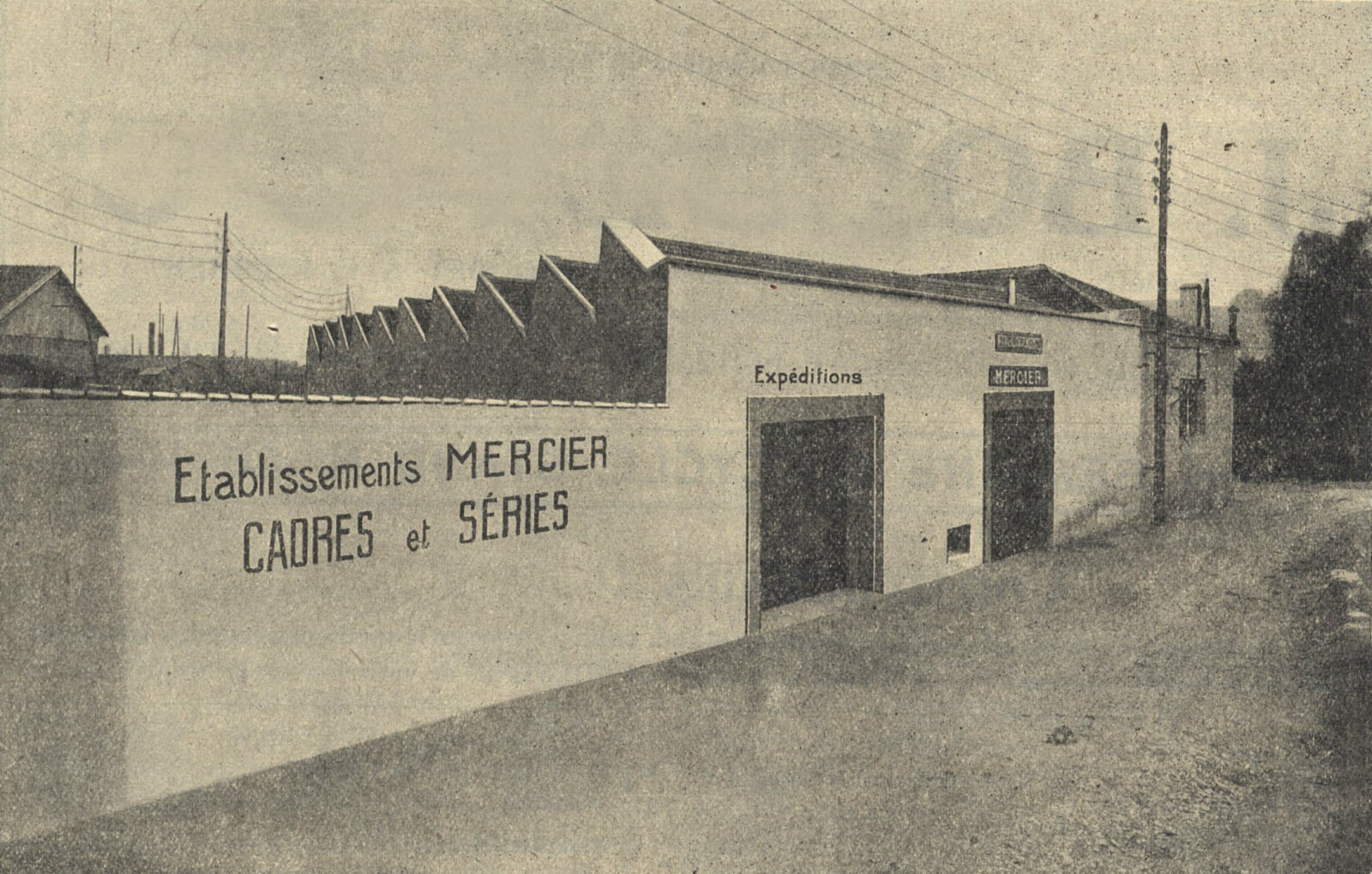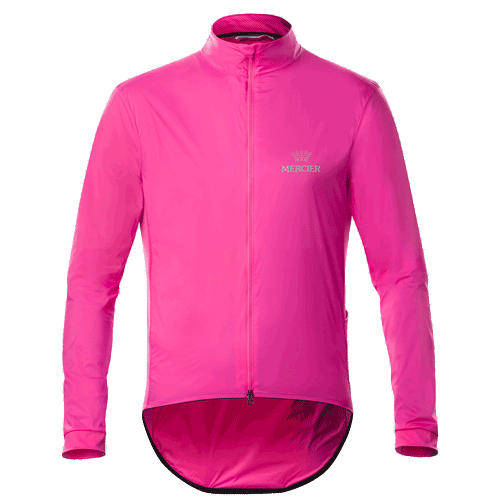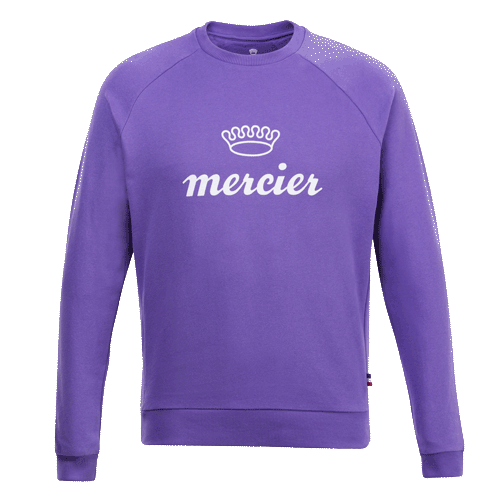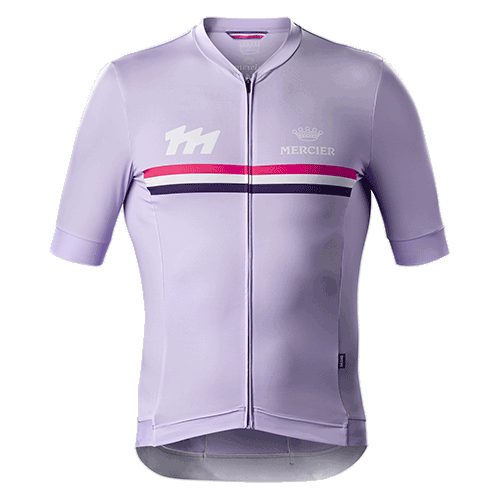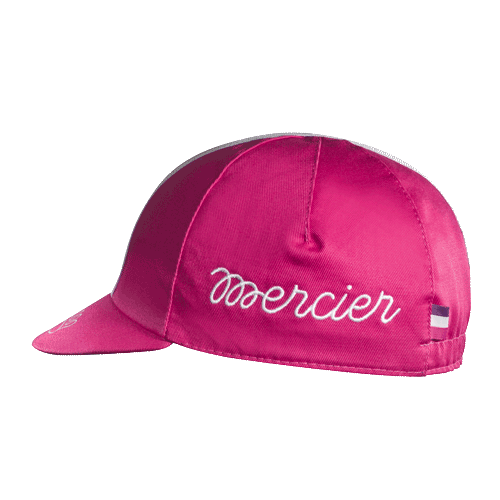This interview was published in Ouest-France newspaper on April the 6th, 2021. Author: Mathieu Coureau. What was growing up in Saint-Etienne like when your name is Emile Mercier?
What was growing up in Saint-Etienne like when your name is Emile Mercier?
I grew up surrounded by bicycle manufacturers of course, on my maternal side. Her father and my mother made bicycles for another brand than Mercier, Louison bicycles. Then my parents met. My father was at Mercier. Their motivation was the same on both sides: to make top of the range racing bicycles. But my story is quite sad. It upsets me because I am a joyful, cheerful person, in a sort of rebound way. My father and his brother founded Mercier Cycles. Sadly, my father died when I was three. My mother had to raise her 6 children alone. I was the youngest of the siblings, she was exhausted. She died when I was 14. So you can see, it’s not a happy story.
And yet, you are renowned for your constant energy.
They gave me strength for life. My father was very cheerful and joyful, my mother less so, more worried and anxious about her responsibility. My father was a man who loved life, he worked a lot. So that was my childhood. Cycling and a love for life everyday. I often say “Life’s a bitch, but I love it!”. Life hasn’t spared me, but you have to cling on each day, even when it’s hard. I don’t think it’s worth crying over one’s luck.
Did you grow up in the workshops?
Strictly speaking, I didn’t grow up in the Mercier workshop. My mother was strict, so the priority was our education. However, when I was 12 or 13, we went to work there occasionally. We weren’t trained to do much, but we still attached the wheels, worked in the shipping department and did a few things on the frames. What memories have stayed with you from your childhood?
What memories have stayed with you from your childhood?
I still vividly remember the machines. There was the conveyor which cleaned the frames. Four of us could fit in at a time to mount the frames on the templates and put them in the conveyor. The machine ran and then it went to be enamelled. There were sanders too. And an incredible machine called a cognifieuse. It took a round tube and hammered it to pewter.
Men and machines.
There are some jobs that made a mark on me. Some were very beautiful, like the brazers. The brazing was great. You needed fittings to connect the tubes together. They would put the tubes into the slots for the fittings to link them, mostly at the back, the guy rope, the chasse etc. Then you had to braze it all. And for the really high-end frames it was done by hand. They ran the melted metal, which was golden and beautiful, into the tubes. It had to be evenly spread or else there were problems with the rigidity afterwards. It was the blacksmiths, a tough job, that fascinated me.
Was it loud, what was it like?
There were 400 people in the workshop. It was quite industrialised, but a lot of the tasks were done artisanally. There was the brazing and also the framers. They had the moulds.
They positioned the frames with wedges and made sure the frame was perfectly centred and balanced. Another thing I used to love: when the frames came out of the enamelling and arrived at the gold-plating station. The gold-plating was exceptional. Most of the staff for this job were women. The women had paint brushes with tiny tips, smaller than a pencil, one very long bristle. They did the gold plating by hand. They pressed with their ring finger and guided the gold paint like this, by pressing on the tube, making tiny movements every now and again as if they were throwing tiny darts, tac tac. The mounting was slow, the finish was faster. It was very pretty. This movement, so well mastered, was exceptional.
Mercier, for any cycling enthusiast at the time, was all about Poulidor.
We didn’t see Raymond very often. He was very protected. When we went to the Tour de France, Paris-Nice or at the arrival at Saint-Etienne, we were met with Antonin Magne (Poulidor’s sporting director). He was very protective. He wasn’t there to mess around. He wanted the best for his champion. I was very respectful towards both of them. As a couple they worked in perfect harmony. Magne had shaped Raymond. He had a strict side, but he was also very protective. Another racer who was very important to Mercier was Louison Bobet. I knew him better. He was an exceptional character. I have endless admiration for this man, he was infinitely refined, well educated, elegant. Here is another family history, he and his brother Jean were inseparable. Louison demanded bicycles engraved with his name. What about you?
What about you?
I was a kid. The only thing I was meant to do was be a good student. When my mother passed away someone wrote to me: “Emile, it’s hard to be an adult when you’re still young enough to be a child.” At 14, when you’ve lost your mother and father, you’re not interested in playing games. Life is ahead of you, but it can also pass you by. We were lucky to be six children, to have each other.
What did you do? What does one do aged 14 in such a situation?
The big question was: how do you succeed at life? I turned to sport. I had an exceptional mother who taught us how to ski at a very young age, in any condition. She packed up the car, we had a house in Annecy. We left Saint-Etienne and we were lucky enough to go on holiday. We escaped. So I nourished myself, or drugged myself with sport. I think I was constantly doing so as to avoid thinking. When you are in great turmoil, it’s action that will save you, not contemplation. At least, that was the case for me. So it was sport that saved me, that allowed me to carry on building my life. I did a lot of cycling, skiing, sailing, tennis. I lived outside, I threw myself into the wind, the slopes, the sensations, the elements, the mountain, the water, the heat, the cold. Without any element of competition.
You were a young adult when the Mercier company folded.
When cycling collapsed, when Mercier folded, I was 21 and very melancholy. I went to see a Stephanois worker who was a friend of my mother’s and I asked him if there was something I could do to save it, to help it live on. I was about to finish my studies, I was part of the Mercier family. He said, “ No, Emile. Live your life, build your life somewhere else.” I took another hit. I thought that was it for me. But what you should take from this, is that the pain of losing a loved one can and should be transformed into a great strength in life.
Which is what you did.
I think so. Live stronger, for them and with them. I went to business school in Paris. In retaliation against all my challenges, I was a first class idiot in class. My poor teachers… I got good grades but I should have been kicked out. They preferred to protect me and accept my behaviour. I was unbearable, I was making up for my suffering. Then I went to Levi Strauss and I worked in finance, then L’Oreal, Charles Jourdan, then in pharmaceutical outsourcing. And I calmed down. I had four daughters too, I think that helped.
How did you come back to Mercier, and why?
I said to myself 8 years ago, “It would be good if I could do something with this”. The Mercier brand was being used for the bicycles. This is when the idea for a line of Mercier clothing came to me. I didn’t like the gloves available on the market. I didn’t like the pants I was wearing. So I bought the textile rights to the Mercier name. I was lucky enough to meet Alexis (Descollonges), who married my eldest daughter Jeanne, who is an intellectual property lawyer. He agreed to join me on this project.
Was the idea for this project clear in your mind?
I had a few ideas, but I wasn’t up to speed with the current trends in today’s marketing. So it was Alexis’ idea to take on an Artistic Director. We approached Yorgo Tloupas, best known for his work as artistic director for Black Crow Skis. He did a great job after taking an interest in our story. We created a small team of people who collaborated on the project. We had the desire, the financing and the skills. Alexis brought a taste of modernity with him.
The first products went on sale last july.
It wasn’t easy. We made a lot of prototypes. We really waited until we were ready. Then, yes, we started to sell last july. Since then we have grown a small international following. We have sold in Japan, Korea, Germany, Canada and the US. We haven’t had a single product returned. We’ve only had high praise on the quality of the materials, the cuts and the comfort of the shorts. We want to make really beautiful products. And, I have to admit, we’ve also had a lot of tender smiles. Little notes to say: “It’s great that you’re doing this Emile.” I’ve realised there’s a lot of affection for this brand. This also means that we can’t let people down. Our products have to be of the highest standards to ensure the client is entirely satisfied. We buy our materials in France. A family business, between Turin and Milan, run by two sisters and their husbands’, makes our products with ingenuity and talent.
Are you still a sports fanatic?
I like the effort. I’m sixty now but I still enjoy it. I always return for the stage of the Tour de France. For the last one at Val-Thorens I was really ill. I arrived late, was sick for an hour, but I enjoyed it all the same. I like the convivial spirit. The Ardechoise, hosted by Bernard Vallet, who was originally at Mercier, is always a great moment. A lot can be said in a look there.
It seems you’re coming full circle at 60.
That’s it. It’s my little nod to my father and mother. This isn’t going to make us a fortune or help us climb up the ranks of success, but that’s not what matters. We’ve bought Mercier back to life, partially, in our own way, rigorously, seriously, carefully, intuitively. We’ve achieved something great here and we’re really happy about it. I’m not proud of anything. I hate the word. What do we keep from life? The beauty of human relationships, being accepted by another, tolerance, respect. Who cares about the rest. /b>
Read more
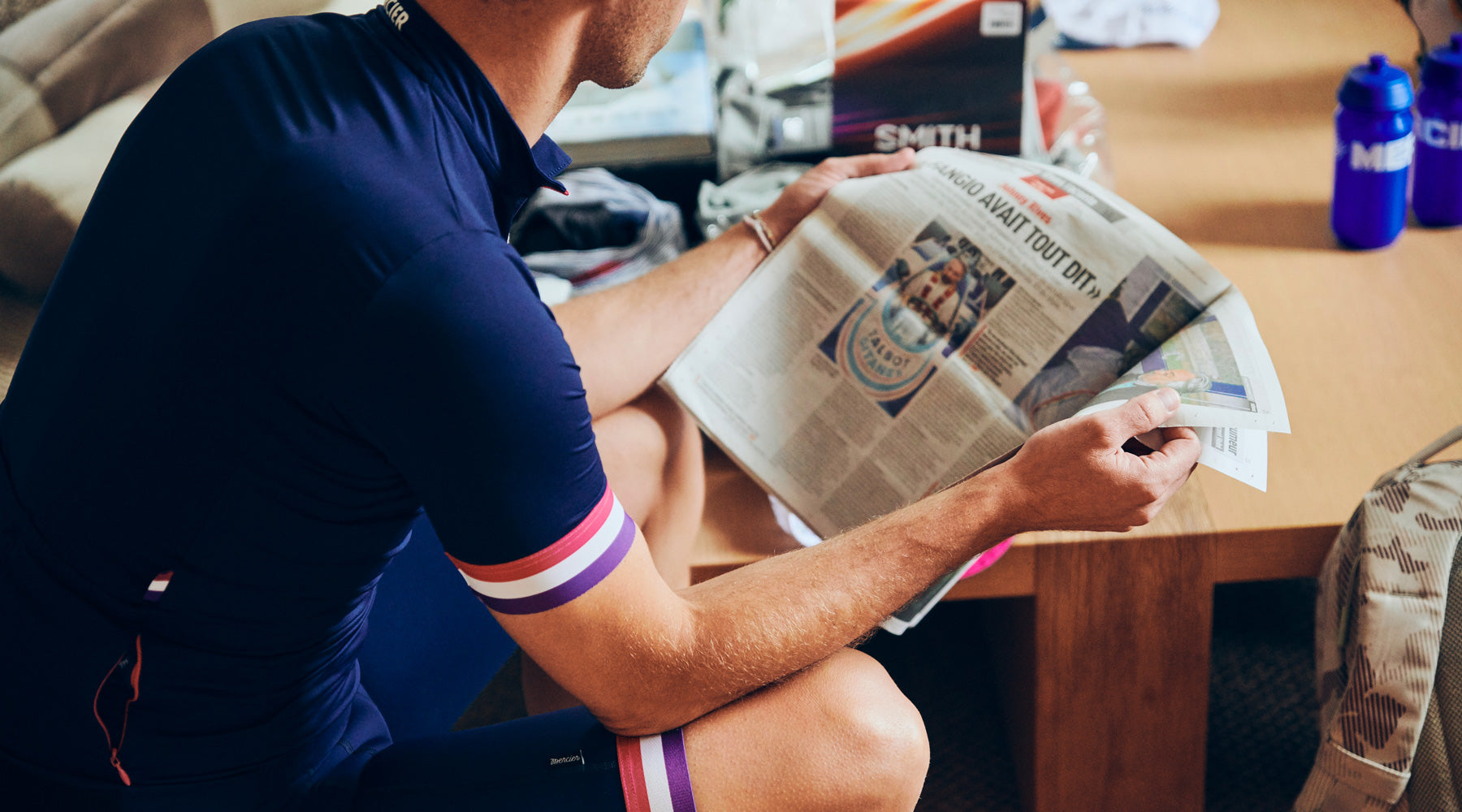
A new season of this year is upon us and although it may be full of uncertainty it is also full of hope. The global health crisis of the past year is unprecedented. Let us hope that the vaccin...
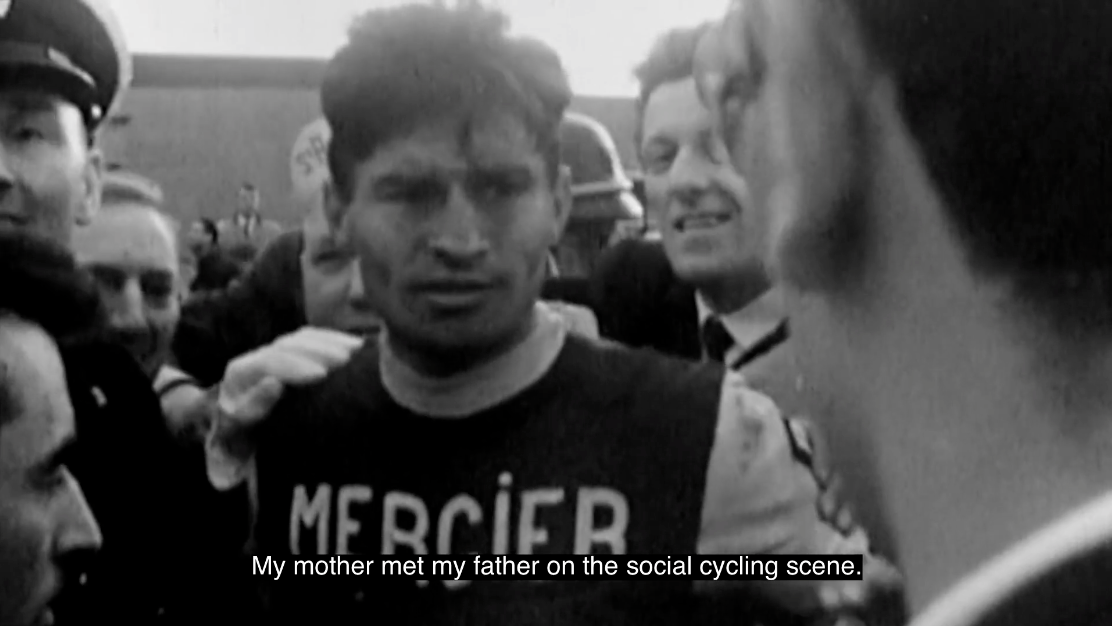
Emile Mercier speaks about his parents, Mercier Cycles and the renewal of the brand.


